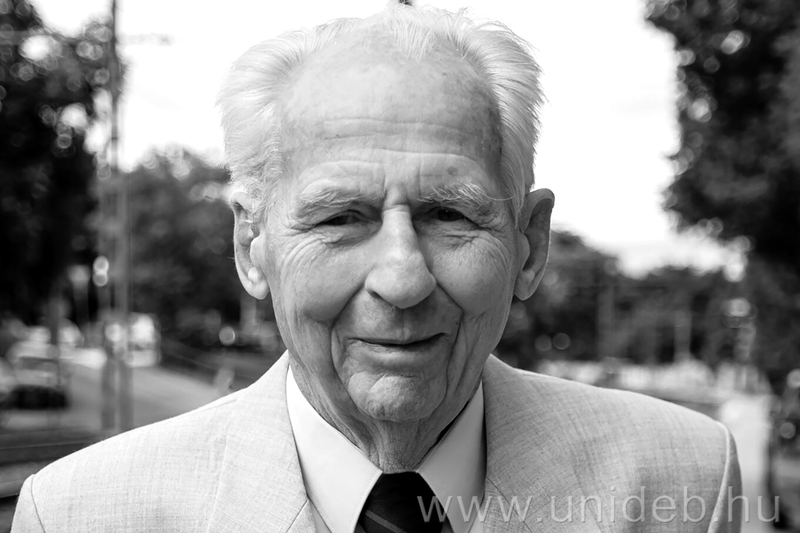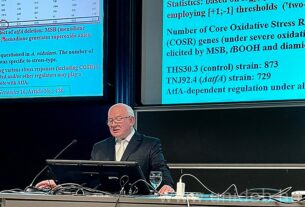Ernő Taxner-Tóth, a literary historian and emeritus professor at the University of Debrecen’s Faculty of Humanities, Institute of Hungarian Literature and Cultural Studies, passed away on January 27, 2025, at the age of 90.
From 1992, he served as a professor at the Department of Old Hungarian Literary History within the predecessor institution, Kossuth Lajos University’s Institute of Hungarian and Comparative Literary Studies.
He taught Hungarian literature from the Enlightenment and Reform Era, and was also willing to deliver lectures on world literature. He quickly became an active participant in university life, being elected Vice Rector for Research in 1995, a role he fulfilled with great ambition for three years.
He held leadership positions on national scientific forums, serving as president of the Literature, Media, and Communication Studies Committee of the Hungarian Accreditation Committee, the Social Sciences Committee of OTKA, and the Kölcsey Society.
In recognition of his scientific and organizational contributions, he was awarded the prestigious Széchenyi Prize in 2002. In 2015, he received the Commander’s Cross of the Order of Merit of Hungary and was an honorary member of the Hungarian Academy of Arts.
In the early stages of his research career, his focus was predominantly on English literary topics, writing studies and monographs on Dickens, Thackeray, and the Brontë sisters. His interest later shifted to 19th-century Hungarian literature, particularly the major poetic works of the Reform Era, and he extensively studied the oeuvre of Ferenc Kazinczy.
He earned his candidate degree in 1976 with a dissertation analyzing the dramas of Vörösmarty. His doctoral dissertation, titled Kölcsey and the Hungarian World, was defended in 1991. In 1993, he published a monograph on Csongor and Tünde, having previously edited its critical edition in 1989. He summarized key literary works of the Hungarian Reform Era in a university textbook in 1996, published a monograph on the novels of József Eötvös in 2005, and explored the history of the Hungarian Jacobin movement in his last book in 2016.
Taxner-Tóth Ernő took on a challenging task when, after his research and museum work, he began working at the University of Debrecen in a new environment, city, and institution. His university colleagues came to know him as an open and always helpful collaborator, maintaining a lively relationship with the university even after his retirement.
Now, his nameplate moves from the door of his university office to an imaginary faculty room where he will spend his boundless time among the great professors of the past.
The University of Debrecen considers Ernő Taxner-Tóth its own departed.
(unideb.hu)


















